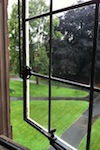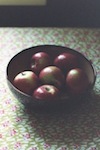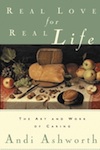 What I didn’t realize was how deeply entwined are the concepts of hospitality and housework. Keeping a home is an extension of hospitality, not in the way we might think of it as occasionally entertaining guests, but as a way of life. It’s not so important to have a magazine-perfect home or spend hours on end cleaning, but taking the time to clean house, clothes, and people; to make a meal; to make comfortable spaces — these are vital tasks.
What I didn’t realize was how deeply entwined are the concepts of hospitality and housework. Keeping a home is an extension of hospitality, not in the way we might think of it as occasionally entertaining guests, but as a way of life. It’s not so important to have a magazine-perfect home or spend hours on end cleaning, but taking the time to clean house, clothes, and people; to make a meal; to make comfortable spaces — these are vital tasks. What I didn’t realize was how deeply entwined are the concepts of hospitality and housework. Keeping a home is an extension of hospitality, not in the way we might think of it as occasionally entertaining guests, but as a way of life. It’s not so important to have a magazine-perfect home or spend hours on end cleaning, but taking the time to clean house, clothes, and people; to make a meal; to make comfortable spaces — these are vital tasks.
What I didn’t realize was how deeply entwined are the concepts of hospitality and housework. Keeping a home is an extension of hospitality, not in the way we might think of it as occasionally entertaining guests, but as a way of life. It’s not so important to have a magazine-perfect home or spend hours on end cleaning, but taking the time to clean house, clothes, and people; to make a meal; to make comfortable spaces — these are vital tasks.
































